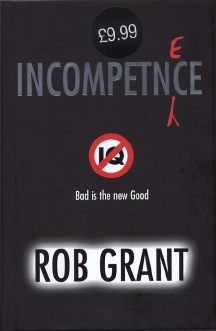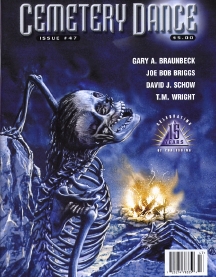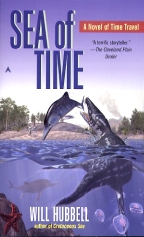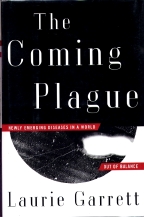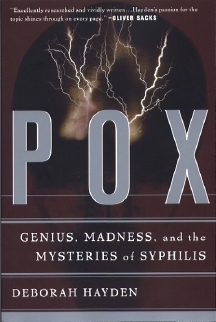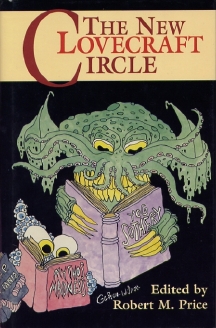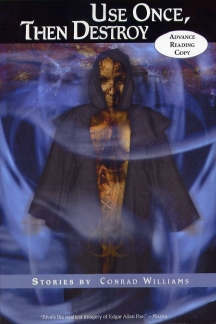|
|
|
This Just in..News from the Agony Column
01-23-04: Grant & Fort |
|||||||
Rob
Grant's Incompetence
|
|
|
|
| Spellcheckers of the near future. |
One of the great pleasures of my Sunday evenings used to be Sunday SciFi from our Public television station KTEH, San Jose. They'd run episodes of Doctor Who, Blake's Seven, and of course, Red Dwarf. It takes a lot to stand up next to immortal titles like the Good Doctor, and Red Dwarf had that to spare. Science fiction is a natural environment for humor, but it's not done well often enough. Yes, we have the wonderful Terry Pratchett, and now it looks like we might also have the wonderful Rob Grant. Grant wrote most of the Red Dwarf episodes and has two, no three novels to his name. His latest is 'Incompetence', and you might have to look in the mystery section to find it. It depends on how competent your bookstore's shelving system is.
With humor, the writing skill dictates all. What made Red Dwarf so great was that no matter how cheesy the effects were, the writing was top-rate. You wanted your laughs? You got them courtesy of Rob Grant. His latest novel is set in Europe of the "far too near future". The EU has has passed this little gem:
Article 13199 of the Pan-European Constitution: 'No person shall be prejudiced from employment in any capacity, at any level, by reason of race, creed, or incompetence.'
Now, I know, you're asking how is that different from the world of
the present? Perhaps it's not. But that's the job of science fiction
-- to show us the present in the guise of the future.
Harry Salt is a detective in Grant's brave -- no, utterly chicken-shit
-- new world saddled with the curse of competence. Which might prove
to be helpful as he pursues an equally competent serial killer. The
world of 'Incompetence' is not particularly science fictional, however.
This is more
what I would call social science fiction. Cheesy UK TV has a tradition
of giving us some of the greatest science fiction
humorists. If you haven't seen -- or don't own on DVD -- the Doctor
Who episode 'The Pirate Planet', written by one Douglas Adams, then
you've got your work cut out for you. Now, it looks as if Rob Grant
is ready to make the leap. And yes, you have your work cut out for
you. Because in the reading arena, the only reward for incompetence
is boredom.
It's proving to be a bit of a Fortean day. My trip to Logos after the broadcast of the Colson Whitehead interview yielded up this treasure:
 |
| The title page of the collected works of Charles Fort from 1941. |
|
|
|
| A first edition of the collected works! |
Charles Fort would have loved the Internet. It's a wonderful place to read about the follies of man and beast alike. And since I'm writing about Fort, I have to take this opportunity to publish this picture of a real dragon, found preserved in a jar in a garage in the UK. German scientists gave it to Britain's Museum of Natural History in the late 1800's, we are told by this news article (mentioned in the Fortean List) in an effort to embarrass the English were they to confirm that it was "real". I've got to say that whatever the heck it is, it's beautiful. The article says it's about 30 cm high, and almost a meter long when laid out. Why can't it be in my garage?
 |
| Waiter, there's a dragon in my soup! |
01-22-04: CD 47 Schow & Briggs |
||||||
Cemetery Dance Issue 47: David Schow Interview & Fiction
|
|
|
|
| CD Issue 47 includes my interview with David J. Schow. |
|
|
|
| Joe Bob Briggs new book. |
Edo Van Belkom is interviewed and has a story inside. Other fiction comes from Harry Shannon, T. M. Wright, William P. Simmons, Gary A. Braunbeck and Kealan Patrick Burke. I don't know about you, but one of the things I enjoy most about magazines like CD is the advertisements. Yes, I know it's sick, but a glance through CD will catch me up quickly on what's afoot with dozens of small press publishers.
01-21-04: McKillip Does Borges, Paperback Writers redux |
||||||
McKillip
Does Borges:
A Good Thing?
|
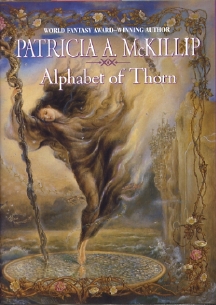 |
|
| All Hail the art and craft of Kinuko Y. Craft. |
Still, I've got to admit it's tough for me to get around the "girly book" phenomenon. There it is, right out in the open. I tend to shy away from girly books. This is not to say that girly books aren't good, or even often great. It's just one of those unstoppable reactions I can't avoid. Some people get the same feeling from a monster book. Some get it from a horror novel. Some get it from a spaceship novel. Heck, that was my reaction for a many a year and it still is, to a certain extent. We'll get to that later, when I look at a girly spaceship novel. No matter how classy and beautiful the cover design is, no matter how prestigious the author, the 'girly book feel' puts me right off.
But McKillip has enough heft to warrant a look beyond the girly book. A look beyond this gorgeous cover -- by Locus cover-girl Kinuko Y. Craft -- suggests a story line that Borges might have suggested. In a palace on the edge of the world, the orphan girl Nepenthe reads through the stacks and translates books for the Queen. Shortly before the coronation, she receives a book from a young mage, a book that has defied translation, until Nepenthe sets herself to the task. Within, she discovers the language of thorns, and her own ("It's your…") destiny ("…Luke"). Libraries and translators certainly intrigue me and the good press that MckIllip gets from award-givers and my reading buddies intrigue me as well. I'll put it in the stack, and see if it gets orphaned.
*Add this to your notes on how literary awards are used to sell books. And see below as well.
|
|
|
| Girls, guns & spaceships. |
Mike Shepherd's first novel is 'Kris Longknife: Mutineer'. If you think it sounds like the setup to a series it is, and they've got Shepherd under a tight deadline; 'Kris Longknife: Deserter' is due in December of this year. But there's more than a bit of cleverness on all sides here. First and foremost is the creation of the dually-scary-to-me subgenre of the Girly Spaceship book. That girl's got a gun, and she looks suspiciously like the blonde she's-a-runway-model-she's-a-crime-scene-investigator they've got on one of the soon-to-be ubiquitous Forensic Detective TV Dramas. She's also got a spaceship for good measure. Cover appeal is also pumped up by some interesting blurbs. You've got your newly-minted Arthur C. Clarke Award nominee Elizabeth Moon (her nominated novel is mentioned on the cover of this book), for girly and award appeal, and then the spaceship appeal is provided by S. M. Stirling, a writer of wonderful alternate histories with some military space opera in the background. So you get a cover image reinforced by the blurbs. An interesting -- and effective to me at least -- sales technique.
That gets you to read the back cover. Plotwise, it sounds fairly standard -- you've got your daughter of privilege who just wants to be a space marine. But then you get this intriguing back-cover riff on current politics: "She has a lot to live up to and a lot to prove in the long-running struggle between her powerful family, a highly defensive -- and offensive -- Earth, and hundreds of warring colonies. Then an ill-conceived attack brings the war close to home, putting Kris's life on the line."
Now I'm intrigued. It doesn't take a starship captain to see some parallels with our own not-so-stellar recent history. So what seems like a frothy girls-with-guns-in-space novel gets a little attitude. I hope it works for Mr. Shepherd. It seems like he might have a more entertaining version of entertainment than usual in mind.
|
|
|
| Mosasauraus ahoy! |
If Will Hubbell is who I think he is, then he's an author and illustrator of children's books who started writing science fiction last year, with a(nother) time travel novel, 'Cretaceous Sea'. So, yes, he approaches the dino issue from the time travel point of view. Remember that time travel is getting about as much credence these days as dino cloning and you’re good to go.
And once you do go, say, back to the past with Constance Clements, a mine owner in the 1880's, you'll discover that she's a time traveler who becomes enmeshed in a plot to change history at the possible expense of the existence of humanity. If I could read faster (or had more time), this looks like a book I'd gobble up in a day. The cover makes a quite a companion for beach reading in Hawaii. I can absolutely see the beach it needs to be read upon. I think that perhaps some enterprising publisher needs to create a Beach reading contest, wherein the winners are given a couple of weeks on a prime beach and all the books they can read. Where do I enter that contest?
|
01-20-04: A Pox Upon You All |
|||||||||
Ten
Years of Literary Disease
'The Hot Zone' was the more bestseller-like of the two. It's the now well-known story of an outbreak of airborne Ebola in a population of chimps at a Washington DC medical facility. It's written like -- and reads like -- a thriller, even though it's non-fiction. Not many non-fiction books sport a Stephen King cover blurb and an Arthur C. Clarke cover blurb that reads like a Stephen King cover blurb. There is a certain amount of blurbness about the book, though it's a red-hot read to be sure. Preston has since gone on to write non-fiction about smallpox and [not particularly well-received] fiction about Ebola. However, this succinct tale of actual terror is surely his current highpoint.
Together, these books created an enormous market where none had heretofore existed. In the subsequent years, we've seen a steady and steadily-increasing stream of books about many diseases or just as often, about a single disease. It's a market that knows no bounds, playing simultaneously on our love of the horror genre and our love of our own personal health. Because while you might appreciate the tips for avoiding a disease offered in the books (don't get a flu shot from a used syringe in a small village clinic in Africa unless you're planning on playing the Wicked Witch of the West ["I'm melting…"]), what we really savor are the scarifying scenes in which a new disease is uncovered, diagnosed and eventually cured. Much like the appeal of mysteries -- seeing order restored -- the appeal of books about diseases is perennial. There are a lot of diseases that need coverage. And that's just covering the real diseases! Imagined diseases -- as covered so thoroughly and delightfully in 'The Thackery T. Lambshead Pocket Guide to Eccentric and Discredited Diseases' -- need love as well!
Which brings us to
'Pox: Genius, Madness and the Mysteries of Syphilis' by Deborah Hayden.
She's brought all of you [notice the pronoun] who
were raised in a post-syphilitic world up to speed on a disease that
no longer creates the deadly tenor of fear it used to, but that, in its
time, afflicted the great, the scurrilous and infamous with symptoms
nearly as entertaining as the method of transmission. 'Pox' concentrates
not so much on the history of the disease as it does on the effects of
the disease on a cross-spectrum selection of madmen, geniuses, and tyrants
from the fifteenth to the twentieth centuries. As with many books about
a particular disease, Hayden's work argues that syphilis had a significant
influence on civilization itself. |
|
01-19-04: Lovecraft & Williams Circle & Destroy |
|||
Joining
the Lovecraft Circle
Perhaps part of this has to do with the way men react to emotions. As teenagers, we're more likely to sock our pals in the shoulder than hug them. As adults, our conversations do the socking. I find that with some friends, a lot of my conversations might seem from the outside like hate-filled insult duels. But that's not how they feel from the inside. It's standard banter, fun-filled knife-tossing. Sure, every now and then a stray knife actually hits the mark, and the effect is bracing. Otherwise, the knife tossing would lose its, uh, edge. I think the same theory applies to reading Chtulhu mythos fiction. As a teenager, I read it and enjoyed the sense of wonder-filled fear, the then-daring mix of science fiction and horror into a sublime, more dangerous form of fiction than the purity of either genre. It only occasionally seemed silly, and when they hit the mark, the arrows sank deep. As an adult, there's a certain comforting predictability of Cthulhu mythos stories. First and foremost, remember that these are stories where the main character, the action figure is engaged in the action of reading, often something obscure and morbid. Like horror fiction. Thus, the stories become mirrors in which we as adults can see ourselves as adults and adolescents; and enjoy some of the benefits of both. Or what the hell, nostalgia rules, plain and simple. Whatever the case, and it's probably somewhere in-between, I always enjoy a good Lovecraft anthology. But for some reason, I'd never quite got round to picking up 'Tales of the New Lovecraft Circle' until now. Why now? Because it was waiting to be bought second hand but in unread condition at Logos Books, for ten bucks, that's why. At that Price, I couldn't resist. It's nice to see that more writers are mining the humorous side of the mythos. The estimable Richard Lupoff seems to the front of the pack, and I'm looking forward to reading 'Lights! Camera! Shub-Niggurath! ' Price has also mined some of the farther reaches here of Lovecraftian obscuriana, mimicking, as he says, the second half of the original 'Tales of the Cthulhu Mythos' wherein younger writers are offered up to the gods. And, yes I'll admit that I bought 'Tales of the Cthulhu Mythos' in hardcover as a teenager from the original Change of Hobbit, the one whose window was used by Harlan Ellison for a bit of stunt-writing. Settle back, boys, pop open a brew and get ready for "…some occult premonition…" (Lin Carter, 'The Slitherer from the Slime'), "The strange disappearance…" ('The Keeper of Dark Point', John Glasby), "…that tiny segment of infinity.." ('Those Who Wait', James Wade), 'The great stone face of the Temple of Kish…" ('The Keeper of the Flame' by Gary Myers) and "...towns that time and progress seem to have ignored..." ('The Church at Garlock's Bend' by David Kaufman). Join hands -- you're in 'The New Lovecraft Circle'. |
|||
Use
Once, Then Destroy
|
